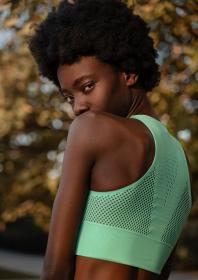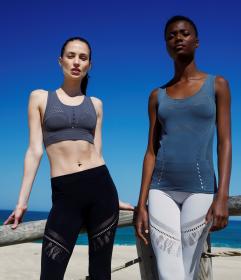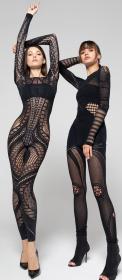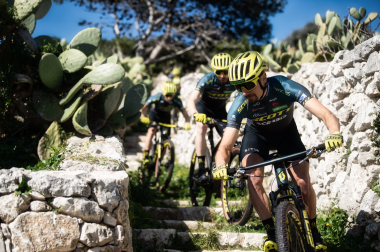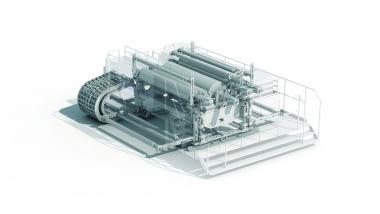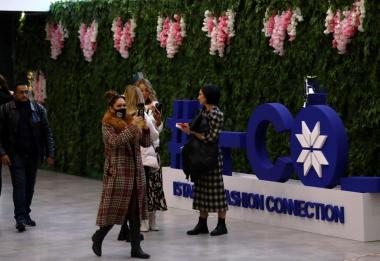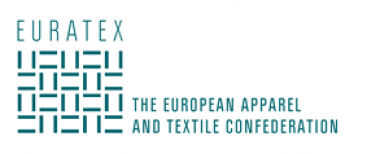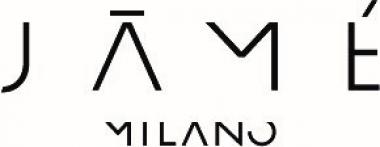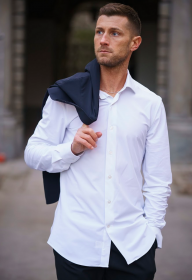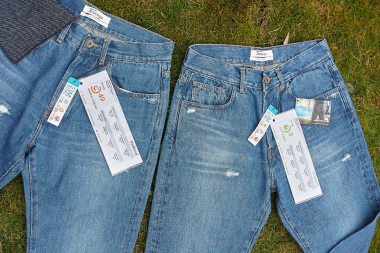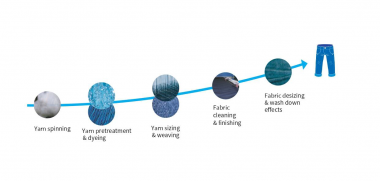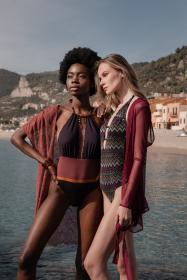ROICA™ : new generation of sportswear
- Cifra selects ROICA™ for a new generation of sportswear in the name of wellness and sustainability
- Performance Days, Hall C1 – stand N08
Cifra, a leading Italian company in Warp Knit Seamless, has chosen ROICA™ by Asahi Kasei, an international reference for premium and smart stretch, for a new generation of clothing dedicated to wellbeing, travelwear and athleisure, made with Cifra exclusive and patented technology in the name of uniqueness and sustainability.
Innovative garments for men and women that combine fashion and function, guaranteeing optimal comfort at any time of the day. Base layers, tops, leggings, jumpsuits made with natural yarns, or recycled pre and post-consumer yarns in combination with ROICA™ EF, the first recycled stretch yarn certified Global Recycled Standard (GRS) able to complete proposals that offer design, performance and responsibility.
The design of the garments, created in Cifra's design office, combines a perfect shape with body mapping technology that creates dedicated ventilation zones for a feeling of comfort and freshness as well as an innovative aesthetic impact.
And when it comes to comfort, ROICA™ activates a new generation conversation linked to the demands of the contemporary consumer looking for well-being in line with the concepts of safety and healthiness emerging in all aspects of daily life. In fact, ROICA™ by Asahi Kasei is the secret stretch ingredient of the modern wardrobe, able to "activate" garments by giving comfort, beauty, quality together with responsible and certified values.
All of this translates into the synergy of development with Cifra. The products, the materials that compose them, along with the way of production and who produces them, transparency and traceability are all aspects that become an integral part of the common proposal that Cifra and ROICA™ are able to offer by joining forces.
"We firmly believe in the new generation of companies oriented towards the creation and supply of valuable products, fully respecting people and the environment, while meeting the performance required by contemporary lifestyles," says Shinichiro Haga, Senior Executive Manager of the ROICA™ Division.
Cifra ROICA™ Performance Days Sportswear Sustainability wellness GRS Certification
C.L.A.S.S. Eco Hub


